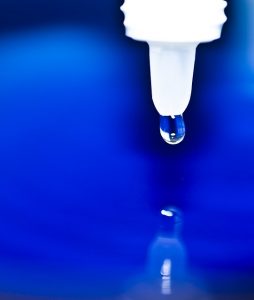Dry Eye Disease affects millions of people and can impact both comfort and quality of vision. This condition occurs when there are not enough tears being produced, or when the quality of tears is not adequate enough to protect the front of the eye. Common symptoms of dry eye include feeling as though the eyes are burning, itchy, gritty, or feeling like there is “something in the eye.” While Dry Eye Disease can affect anyone, risk factors for the condition include increased age, female gender, smoking, diet, and a variety of systemic diseases.
What Causes Dry Eye Disease?
Dry eye is most commonly caused by an inadequate amount of tears being produced. Tear production tends to naturally decrease with age, and additionally can be diminished by a variety of medications or systemic diseases. In these cases, in which there are less tears being produced than needed, the front surface of the eye is not receiving the amount of nourishment it requires and dry eye symptoms are experienced.
Tear instability is the other prominent cause of dry eye symptoms. When tears are created, they have three layers: an outer oily later, a middle watery layer, and an inner mucus layer. All three of these layers are necessary to provide the eye with protection and nourishment. If any of these layers are compromised when the tears are produced, the front of the eye is not adequately protected and dry eye symptoms may be experienced.
What Else Should I Know?
In order to address dry eye complaints, an optometrist will need to perform a comprehensive eye examination. Additional testing may be performed to determine the amount of tears being produced and/or the evaporation rate of the tears. A variety of treatments for Dry Eye Disease exist, including over-the-counter drops, prescription medications, and lifestyle and behavior changes such as warm compresses or lid scrubs.


0 Comments